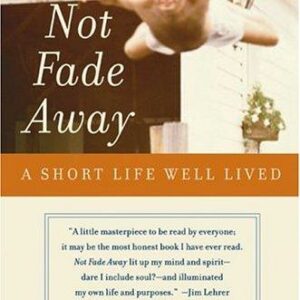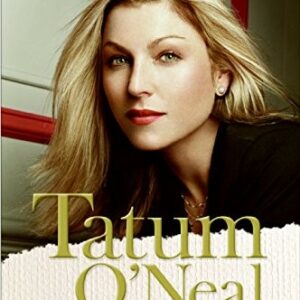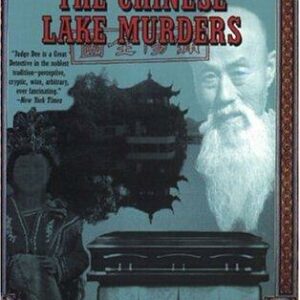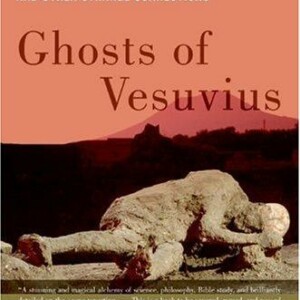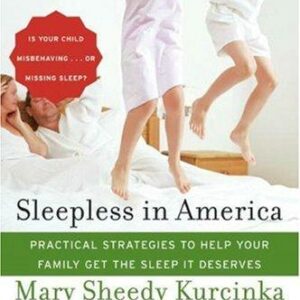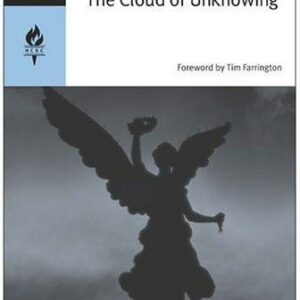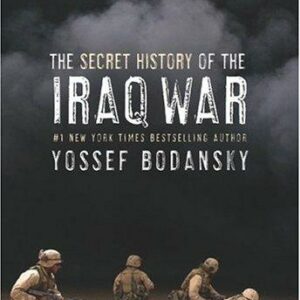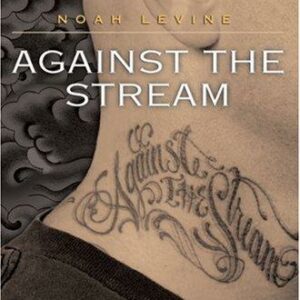The Way We Die Now
$17.00
| Title | Range | Discount |
|---|---|---|
| Trade Discount | 5 + | 25% |
- Description
- Additional information
Description
When Miami Homicide Detective Hoke Moseley receives an unexplained order to let his beard grow, he doesn’t think much about it. He has too much going on at home, especially with a man he helped convict ten years before moving in across the street. Hoke immediately assumes the worst, and considering he has his former partner, who happens to be nursing a newborn, and his two teenage daughters living with him, he doesn’t like the situation on bit. It doesn’t help matters when he is suddenly assigned to work undercover, miles away, outside of his jurisdiction and without his badge, his gun, or his teeth. Soon, he is impersonating a drifter and tring to infiltrate a farm operation suspected of murdering migrant workers. But when he gets there for his job interview, the last thing he is offered is work.
In this final installment of the highly acclaimed Hoke Moseley novels, Charles Willeford’s brilliance and expertise show on every page. Equally funny, thrilling, and disturbing, The Way We Die Now is a triumphant finish to one of the most original detective series of all time."No one writes a better crime novel than Charles Willeford." –Elmore Leonard
“If you are looking for a master’s insight into the humid decadence of South Florida and its polyglot tribes, nobody does that as well as Mr. Willeford.” —The New York Times Book Review
“Willeford builds up enormous tension–you are compelled to keep reading.” —The Philadelphia Inquirer
“Pure pleasure . . . Mr. Willeford never puts a foot wrong.” —The New YorkerCharles Willeford was a highly decorated (Silver Star, Bronze Star, Purple Heart, Luxembourg Croix de Guerre) tank commander with the Third Army in World War II. He was also a professional horse trainer, boxer, radio announcer, and painter. Willeford, the author of twenty novels, created the Miami detective series featuring Hoke Moseley, which includes Miami Blues, Sideswipe, and New Hope for the Dead. He died in 1988.1
Tiny Bock heaved his bulk from the sand chair.
He stood silently in the clearing for a moment listening, but all he could hear was the whir of insects and the scuttling of a few foraging wood rats. He folded the red-and-green webbed chair, took it to the black pickup truck and threw it into the back. He opened the cab door on the passenger’s side and reached for the paper sack on the seat. There were two bologna sandwiches wrapped in oil paper and two hard-boiled eggs in the sack. He unwrapped one of the sandwiches, noticed that the lunch meat had turned green on the outer edge. He rewrapped the sandwich, put it back in the sack, took one of the hard-boiled eggs. He cracked open the egg and peeled it, but when he split the egg in two he realized that the yolk had turned purple and there was a strong smell of sulphur.
Twenty feet away a raccoon, also smelling the egg and the sulphur, rose on its hind legs and waved its forefeet, sniffing the air.
Tiny Bock noticed the raccoon and placed the two halves of the egg on a tuft of grass. As Tiny moved to the cab of the truck the raccoon, a female, scurried forward and scooped up the two egg halves. The coon took the two halves to a muddy pool of water and rolled the egg in the water to wash it preparatory to eating. Tiny Bock, who had taken his shotgun from the cab of the truck, fired once. Eight of the twelve slugs hit the raccoon, reducing it to an unrecognizable spot of fur and blood. Bock reloaded the shotgun before replacing it on the gun rack above the seat.
Listening again, Bock could hear the airplane sound of the airboat long before he saw it. Then he spotted the boat; it was returning to the hammock from a different direction than he had expected, but Chico de las Mas was heading unerringly toward Bock and the parked truck. Skimming across the wet sawgrass of the Everglades, it resembled a giant but harmless insect.
Skidding the aluminum boat sideways, Chico stopped short of the dry brushy hammock. After Chico turned the engine off, and the whirling propeller had run down, Bock said, "What took you so long?"
"Had a hard time finding a deep enough sinkhole. But it won’t matter. When the rains come this whole area’11 be under a foot of water. You won’t be able to drive out to the hammock here for another six months. I thought I heard a shotgun, but I wasn’t sure."
Bock grinned and pointed to what was left of the raccoon. "I shot a coon."
The two men pushed the airboat into the clearing and well into the brush on the other side. Chico chained the prow of the boat to a cypress tree, and then padlocked the chain. They climbed into the cab of the truck. Chico took the wheel and drove across the dry sands, avoiding occasional puddles, toward the dirt and oolite access road, some ten minutes away. The access road had been built illegally by a group of Naples hunters almost five years ago in the Big Cypress. They had also planned to build a weekend lodge, but their plans had fallen through, so now the road, a foot above the water level, was a road to nowhere.
"There’s blood on the front of your shirt," Bock said.
"I know." Chico took a bloody Baggie out of his shirt pocket and handed it to Bock.
"What’s this?"
Chico laughed. "A bonus. Remember the tall one, the one they called C’est Dieu? I cut that out of his asshole."
Bock removed the soggy wad of money from the Baggie, tossed the Baggie out the window. He unfolded and counted the money. "One ten, and thirty ones. Forty bucks. Did you cut the others?"
"Didn’t have to. I’ve been watching them close, and no one ever let old C’est Dieu out his sight. Always one or two with him. So I knew he was holding it for all of ’em."
Bock folded the bills and put them into his back pocket. "There’s a couple of bologna sandwiches left in the sack if you want ’em."
"Sinking Haitians in a swamp is hard work, Mr. Bock. I thought we’d drive into Immokalee and get a decent meal at the cafeteria." Chico slowed down, ripped off his shirt and tossed it out the window.
"Why not? But you won’t be able to eat in the cafeteria without a shirt."
"I’ll buy a T-shirt at the sundry store. It’s no big deal."
When he reached the access road, Chico got onto the raised road without any trouble using first gear. The road ran west for two miles before it met the state highway. Chico turned north and headed for Immokalee.
2
Commander Bill Henderson, Homicide Division executive officer, Miami Police Department, entered Sergeant Hoke Moseley’s cubicle, removed the Miami Herald from the chair beside the desk, tossed it toward the overflowing wastepaper basket, and sat down heavily. He looked at the sheet of paper on his clipboard and sighed.
"I’m running a little informal survey, Hoke."
"I’m busy right now, Bill. I think I’ve finally got a worthwhile lead on the Dr. Paul Russell killing."
Hoke’s messy desk was littered with a half dozen sheets of bond typewriter paper, supplementary reports, and a red accordion file. He had been drawing diagrams on the bond paper with a ruler and a ballpoint.
"This is an important survey."
"More important than solving a cold case homicide?"
Bill pulled his lips back, exposing large gold-capped teeth that were entwined with silver wire. "Depends on whether you smoke or not. Have you quit yet?"
"Not exactly, but I’m down to about ten a day. I’ve tried to quit cold turkey, but the longest I’ve managed to go was about six hours. Now I time it and smoke a Kool every four hours, with maybe a few extra at night when I watch the tube. If I can hold it down to only ten a day, it’s almost like not smoking at all."
Bill shook his head. "I switched over to cigars, but I still inhale, so I’ll probably have to go back to cigarettes. After five cigars my throat’s raw as a bastard, and I’ve been coughing up all kinds of shit in the morning."
"Is that the end of the survey?" Hoke picked up a Telectron garage opener device, the size of a king-size pack of cigarettes, and showed it to Bill Henderson. "Know what this is?"
"No, I don’t, and no, I’m not finished. This really is important. I attended the new chief’s weekly briefing this morning, and he’s come up with a terrible plan. He wants to stop all smoking inside the police station. His idea’s to set up a smoking area in the parking lot, and anytime you want to smoke you have to sign out for personal time and go out to the lot. Then, when you finish your smoke, you sign back in again and return to your desk or whatever. A lot of guys have already quit smoking, you see, and they’ve complained to the new chief that smoke from heavy smokers is invading their space."
"What about the men’s room?"
"No smoking inside the building, period. That includes interrogation rooms, suspect lockup, everywhere except the outside parking lot."
"It won’t work, Bill. Lieutenant Ramirez, in Robbery, smokes at least three packs a day. He might as well move his fucking desk out to the parking lot."
"That’s what we tried to tell the new chief. But he figures if he makes it hard on smokers, they’ll either cut down radically or quit."
"Does the new chief smoke? I never noticed."
"Snoose. He dips Copenhagen. He usually has a lipful of snuff, but he doesn’t spit. He swallows the spit instead."
"That figures. The rule won’t bother him any, so the bastard doesn’t give a shit about the rest of us. But I don’t think a rule that dumb can be enforced. Guys’ll sneak ’em in the john or even at their desks."
"Not if they get an automatic twenty-five-dollar fine they won’t."
"Jesus." Hoke took a Kool out of his pack and lighted it with his throwaway lighter. He took one drag and then butted it in his ashtray. "I lit that without thinking, and I’ve still got an hour to go." He returned the butt to his pack.
"That’s why I’m running this survey, Hoke. If a big majority complains, he probably won’t put in the rule. So I’ll put you down as opposing the new rule, right?"
"Right. Now let me tell you about this little gadget–"
"Some other time. I’ve got to see some other guys before they go off shift." Henderson got to his feet. "One other thing–I almost forgot to tell you." Henderson snapped his fingers and turned in the doorway. At six-four and 250 pounds, his body almost filled the doorframe. "Major Brownley said to tell you to let your beard grow, and he’d call you Sunday night at home and let you know about the meeting–"
"This is only Thursday, and I work tomorrow. Does he mean that I let my beard grow out now, or do I shave tomorrow?"
"All he said was what I told you. So I suppose he means to let it grow from now till he tells you to shave."
"Did he say why? Perhaps I should talk to him about this first."
"You can’t. He went down to the Keys and won’t be back till Sunday night. He’ll call you at home then and explain it to you, and also about the meeting."
"What meeting?"
"He didn’t say. He’s got a visitor, an old fraternity buddy he went to A and M with in Tallahassee, and they went fishing down in the Keys. Off Big Pine, I think."
"I’ve never grown a beard, Bill. Even if I go a day or two without shaving, it makes my neck itch. Did he give you any hint–"
"I’m only the executive officer. Major Brownley’s the division chief, and he doesn’t take me into his confidence on every little thing. I’m just passing along the message he gave me over the phone. He didn’t come in today, and that’s why I went to the new chief’s meeting instead of him. If it was important for me to know, he would have told me the reason. Don’t worry about it."
"Why shouldn’t I worry? Wouldn’t you be concerned if Willie ordered you to grow a beard?"
"I’d like to stay and talk about this with you, although it’s a fruitless discussion. I say fruitless because anything we say would only be idle conjecture, based on inadequate information. But I suspect sometimes that Willie Brownley pulls shit like this once in a while just to keep us off-balance. My son Jimmy’s like that. Only yesterday Jimmy asked me if he could grow a mustache."
"Jimmy’s only twelve years old."
"Eleven. But I gave him permission anyway. I figure it’ll take another six years before it grows out long enough to be noticed. But he was happy as hell when I told him to go ahead."
"At least Jimmy asked for permission. Sue Ellen had her hair all kinked up and then dyed it electric blue right down the middle. She didn’t say anything. She just did it."
"But she’s seventeen. If Jimmy was seventeen, he’d grow his mustache without asking me for permission."
"She looks terrible. She looks like the kind of girl who goes with boys who’ve dropped out of school."
"If she’s still working at the car wash, that’s the only kind of boy she’s likely to meet. I’m not criticizing–at least she’s got a job. But she’s probably the only white girl in Miami working full-time at a car wash."
"I know. She’s even picked up some black dialect. But I’ve discouraged her from using it around the house."
Henderson disappeared from the doorway. Hoke gathered his work sheets together and put them into the red-flagged Dr. Russell file. He locked the file, together with the supplementary reports, in his two-drawer file cabinet. He slipped into his blue poplin leisure jacket and dropped the garage door opener into the left leather-lined outside pocket before leaving his cubicle on the fourth floor of the Miami police station. Hoke always carried several loose .38-caliber tracers in the outside pocket of his jacket, and he’d had it lined with glove leather for this purpose.
Hoke rode the elevator down to the garage and climbed the ramp to the outside parking lot. He paused at the exit, inhaling the hot, humid air, and wondered where the new chief would put the smoking area in the lot. The fenced-in area would be crowded as hell if three hundred cops on each shift made trips back and forth to smoke. Not all of them smoked, however. But even one hundred and fifty cops going and coming from the building would crowd the elevator and stairways. It would take approximately twenty minutes for each cop who smoked to make his round trip and smoke a cigarette, and if each cigarette was charged to personal time, without pay, six smokes a day could mean a loss of two hours’ pay for each smoker. That meant that many would be sneaking cigarettes and then get a twenty-five-dollar fine when they were caught. All this extra money coming into the department would mean that the new chief would probably meet his annual budget for the first time in the city’s history.
Hoke climbed into his battered 1973 Pontiac Le Mans and lighted a cigarette for the drive home to Green Lakes. If the rule went in, despite the advice not to do it, the odds were good that it would be rescinded within three days. Tomorrow he would get together with Bill Henderson, and they could make up an office pool on how long the rule would last. After they made up the card, Hoke decided he would take number three before they sold the other slots around the office. This would be like found money. A rule that stupid couldn’t possibly last for more than three days….
The Green Lakes subdivision, where Hoke lived in northwest Miami, bordered Hialeah, Dade County’s second-largest city, but it was still primarily an enclave for WASPs, rednecks, and well-paid blue-collar workers who were employed, for the most part, at the Miami International Airport. There were a few Cuban families in the subdivision, but not very many, and one entire block had filled up with immigrant Pakistanis. The houses were all concrete block and stucco, three-bedroom, one-bathroom buildings, constructed during the mid-fifties. The homeowners’ association had managed to stop more Pakistanis from buying houses by passing a new rule that limited the occupancy of each house to only six residents–unless a second bathroom was added to the building. The sewer system, also installed during the mid-fifties, was considered inadequate for any more added bathrooms, so no new permits for additional bathrooms were granted. This rule effectively kept out any additional Pakistanis, with their families of twelve or more–and often up to twenty-five–and it excluded large, extended Latin families as well. There was a grandfather clause, of course, so original WASP homeowners, with several children apiece, were not affected by the new ruling.US
Additional information
| Weight | 7 oz |
|---|---|
| Dimensions | 0.5600 × 5.2400 × 7.9600 in |
| Series | |
| Imprint | |
| Format | |
| ISBN-13 | |
| ISBN-10 | |
| Author | |
| Audience | |
| BISAC | |
| Subjects | mysteries and thrillers, mystery books, mystery novels, crime books, detective novels, Books for men, pulp, mystery thriller suspense, murder mystery books, fiction books, mystery and suspense, books fiction, books mystery, mystery and thrillers, crime novels, collusion, inspirational gifts for women, hard case crime, charles willeford, boyfriend stocking stuffers, mystery, crime, golf, Sports, thriller, fiction, FIC050000, detective, action, suspense, police, murder, novels, short stories, noir, crime fiction, thrillers, mysteries, FIC062000 |


